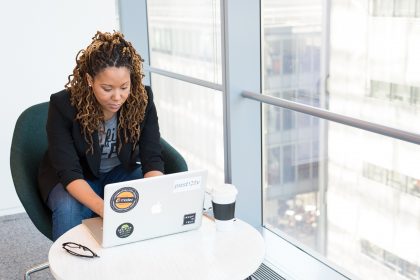
Core to coaching is holding the client as their own best expert. The coaching process is specifically and intentionally one where the client reflects, explores, considers, and ultimately chooses their own approach, strategies, actions, etc. This is so very different from what we are accustomed to professionally – typically our value, worth, and career advancement are based on our knowledge and being the go-to person for information and answers. The paradigm shift in becoming a coach is moving to asking the questions so the client finds their own answers.
Consider this scenario: A coaching client is underperforming and at risk for losing their job. The client explains the deficiency to the coach. The coach has an idea for correcting the deficiency and shares that idea with the client. The client says it is a great idea.
At this point, the possible outcomes include:
- Client simply does not use the idea. This is common because there is no ownership in the idea. The client then may feel guilty or a failure for not following through.
- Client uses the idea, and it does not work. This possibility is increased because at the first bump in the road, because there is no ownership in the idea, it is easy to simply stop and blame the coach. Had it been their idea, they are more likely to have figured out how to continue moving forward.
- Client uses the idea, and it works. While on the surface this sounds great, in reality it creates an unnatural dependency on the coach as the source of solutions while undermining the confidence of the client.
How did the coach cause harm in each of these possible outcomes?
- By giving the answer, the coach blocked client development because there was no further exploration and thinking, nor an opportunity for the client to figure it out them self.
- Undermined confidence. Because the answer came from someone else, the client’s confidence in their own ability to figure it out is undermined.
- Possible blame. If the idea doesn’t work, the client might resent the coach. If they don’t use the idea, the client might blame the coach for a bad idea that wasn’t going to work anyways.
- Possible unnatural dependency. When answers come from elsewhere, people become dependent on outside sources for their answers.
- Increased the risk of the client losing their job. Because the first two possible outcomes are essentially a failure for the client to correct the deficiency, and are highly likely outcomes, the coach added to the risk of the client losing their job.
- Violated the agreement for coach services. By giving the answer instead of coaching, the coach violated their agreement with the client – and a sponsor too if they are involved.
The ideal scenario in the above circumstance is to hold the client as fully capable and as their own best expert. This means the coach stays in the role of coach and asks questions and effectively partners with the client as they explore and figure it out for them self. The high ROI of coaching is based on the client figuring it out for them self and making their own choices.




